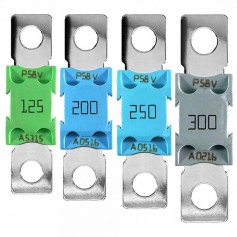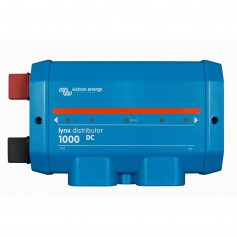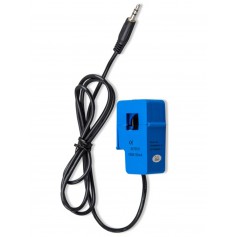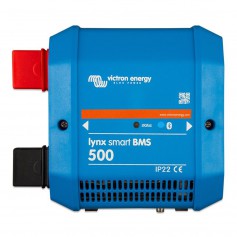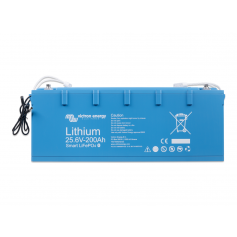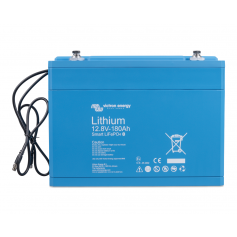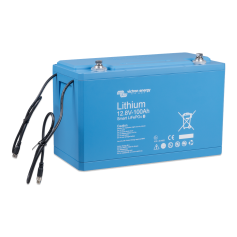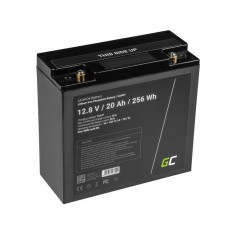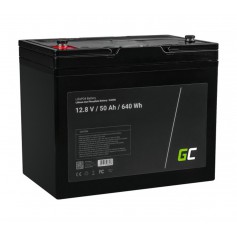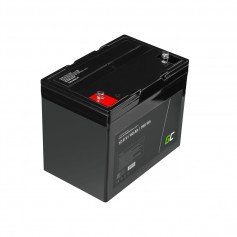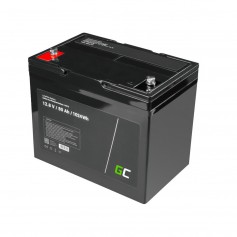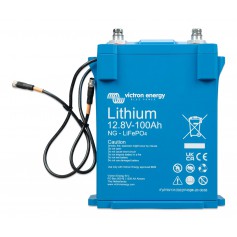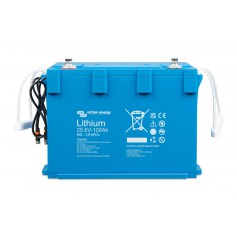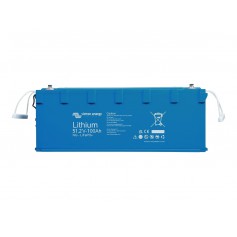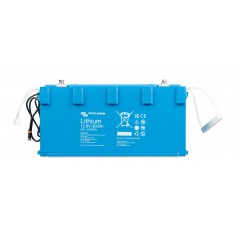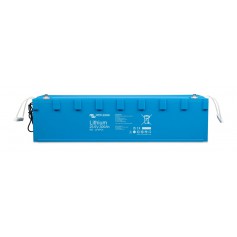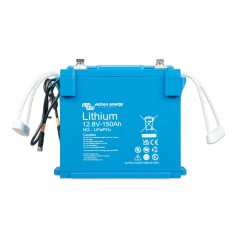No products
Download
Data sheet
| Type | Rechargeable |
| Style | LiFePO4 |
| Manufacturing number | BAT524110610 |
| Target platform | LiFePO4 |
| Amperage | Does not apply |
| Voltage | 25.6V |
| Wattage | Does not apply |
| Capacity | 100Ah |
| Characteristics | Does not apply |
| Made in | Designed in The Netherlands. made in China |
More info
The Victron Lithium LiFePO4 Smart battery is based on Lithium Iron Phosphate (LiFePO4 or LFP) technology, the safest among lithium-ion battery types.
The Victron Smart LFP batteries have integrated cell balancing and cell monitoring. This allows information about cell voltage and battery temperature to be read and monitored with the Victron Connect Bluetooth app. This information is passed through two cables to an external Battery Management System for integration with other system components.
• With integrated cell balancing
• Can be parallel and series connected
• Bluetooth app available to monitor cell voltage and temperature
Requires one of these BMS-es:
• VE.Bus BMS – recommended for systems with our inverter/chargers.
• smallBMS – recommended for use in small systems.
• Battery Management System BMS 12/200 – recommended for use in Automotive and Marine systems having DC-loads and Alternators.
• Smart BMS CL 12/100 – recommended for use in Automotive and Marine systems having DC-loads and Alternators.
• Lynx Smart BMS - recommended for use in large systems.
Why Lithium Iron Phosphate?
Lithium Iron Phosphate (LiFePO4 or LFP) is the safest of the major lithium-ion battery types. The nominal voltage of an LFP cell is 3.2V (lead-acid: 2V/cell). A 12.8V LFP battery therefore consists of 4 cells connected in series; and a 25.6V battery consists of 8 cells connected in series.
Robust
A lead-acid battery will fail prematurely due to sulfation:
• When operating in shortage mode for extended periods (when the battery is seldom or never fully charged).
• If stored partially charged, or worse, fully discharged (in a yacht or mobile home during the winter).
An LFP battery does not need to be fully charged. The lifespan is even slightly longer by partially charging the battery instead of fully. This is a major advantage of LFP over lead acid. Other benefits include wide operating temperature range, excellent cycle performance, low internal resistance and high efficiency (see below). LFP is therefore the right choice for very demanding applications.
Efficient
Energy efficiency can be essential in various applications (particularly in autonomous solar and/or wind energy). The energy efficiency cycle (discharged from 100% to 0% and charged back to 100%) of the average lead-acid battery is 80%. The energy efficiency cycle of an LFP battery is 92%. The charging process of lead-acid batteries becomes particularly inefficient when the state of charge reaches 80%, resulting in efficiencies of 50% or even less in solar systems requiring several days of reserve power (battery that is charged at 70% to 100% state of charge). works). However, an LFP battery still has an efficiency of 90% at light discharges.
Comparison with lead-acid batteries
LFP batteries are more expensive compared to lead-acid batteries. But in demanding applications, the high initial cost is more than offset by the longer life, superior reliability and outstanding efficiency. An LFP battery saves up to 70% in space and is up to 70% lighter in weight.
bluetooth
With Bluetooth, cell voltages, temperature and alarm status can be monitored. Very useful to locate (potential) problems, such as cell imbalance.
Also Bought Products
-
Victron MultiPlus-II GX...
€ 701,65 -
Victron Energy Lynx Distributor M8
€ 144,59
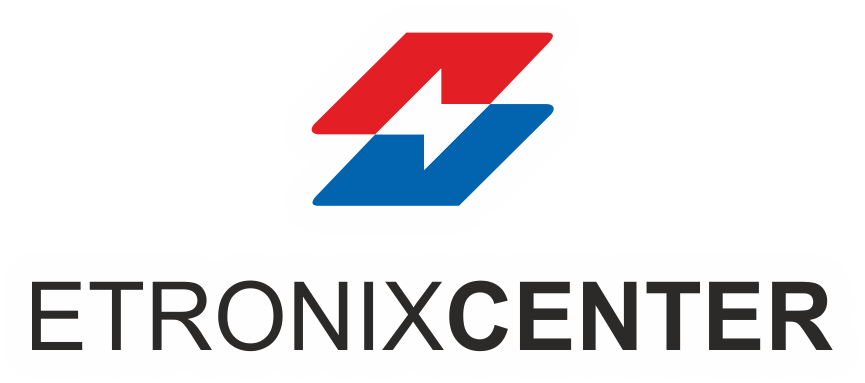
 en
en
 nl
nl  de
de  fr
fr  es
es  it
it 



























 United States.
United States.









